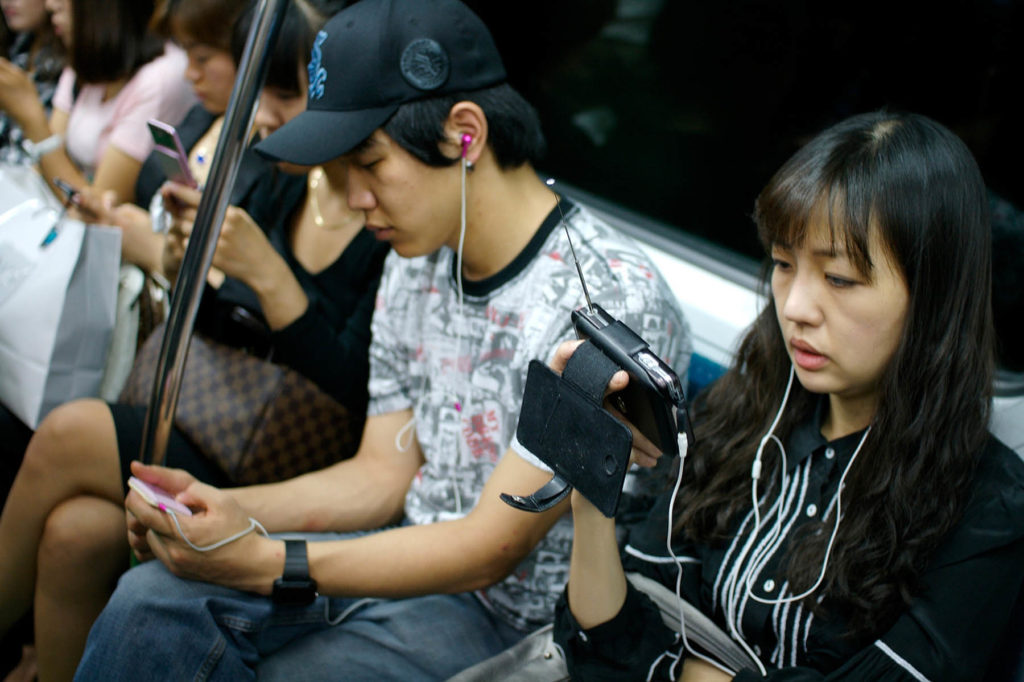Background
In a major victory for free speech activists, the South Korean Constitutional Court struck down an infamous Internet identity verification rule in August 2012, which for five years had required all major Korea-based website operators to collect identifying information from comment posters on their sites.
Case Card
Name: Internet Identity Verification System
Court: Korean Constitutional Court
Decision Date: August 23, 2012
Case Number: 2010Hun-Ma47, KCCR : 24-2(A) KCCR 590
Judgment: PDF
Issue: Regulation of user identities online
Facts
In 2004, Korea adopted the “internet real-name system” as part of an amendment to the Public Official Election Act. Incumbents worried the impact of unregulated online speech would adversely affect election outcomes, so users were required to verify their identities by submitting their Resident Registration Numbers (RRNs) before contributing to election-related websites. Like a Social Security Number, the RRN is a 13-digit number uniquely assigned to a Korean citizen at birth.
Then, in 2007, regulators expanded the real-name system to apply to any website with more than 100,000 visitors per day under Article 44(5) of the Act on Promotion of Information and Communication Network Utilization and Information Protection. This expansion of the policy came after investigators linked several suicides to cyberbullying and online slander, which sparked calls for greater restrictions on Internet anonymity. Major providers now asked users for their RRNs before they could sign up and post comments on their site. Officials hoped the ability to force online service providers to disclose the personal information of alleged offenders would contain the flow of harmful fake news stories.
Many free speech and civil society activists soon denounced the rule, arguing that prohibiting anonymity chilled legitimate online speech, such as statements criticizing the government. In January 2010, the People’s Solidarity for Participatory Democracy (PSPD) Public Interest Law Center and the Korean Progressive Network (Jinbonet) filed constitutional challenges against the verification rule.
Outcome
In August 2012, the judges of the Korean Constitutional Court unanimously voted that clause 5 of article 44 in the Act on Promotion of Information and Communications Network Utilization and Information Protection violated the Constitution. The Court stated that the real name policy violated users’ rights to freedom of speech, an individual’s right to determine her own personal identity, and online service providers’ rights to freedom of speech. To fully justify the restrictions, the Court said, officials must have demonstrated a clear public interest. But the evidence presented was insufficient to show a decrease in hateful comments, defamation, and insults on the Internet following the real name policy. Online service providers also had alternative methods of managing malicious posts, and authorities could track web users through their IP addresses. On top of that, the rule had alienated users who were now shifting to foreign online service platforms.
“Restriction on freedom of expression can be justified only when it is clear that it benefits public interests,” the Court said in its verdict. “It’s difficult to say that the regulation is achieving public interests.”
Collaboration
According to Byoung-il Oh, a member of Jinbonet, the long history behind the reform movement in South Korea began in 1996, when the government introduced an electronic identification card that would integrate personal information, including RRNs, with the electronic card. Many viewed this new electronic ID card as a measure of state control that violated citizen’s privacy rights. Members of multiple civil society organizations, experts and activists denounced the system, and many of them would later together launch Jinbonet— a non-profit organization dedicated to advocating for human rights on the Internet and providing internet service to other social movement groups as an alternative ISP in Korea—in 1998.
Since then, the movement has been a key centerpiece of the organization’s work. By 2002, activists were gathering at conferences and workshops to debate the national ID proposition, and citizens were calling for the ability to change RRNs. In 2005, activists and experts from human rights organizations, including Jinbonet, collaborated to conduct a survey of current legislation and private sector forms that required RRN, which revealed a widespread collection of identification numbers. In 2006, reporters revealed a massive theft of personal information because of a preemptive collection of RRNs, which further fueled appeals to overhaul the system.
These early conversations set the foundation for future collaboration. According to Oh, the impact of the RRN system on a wide range of issues brought together a diverse set of organizations at different times. Jinbonet itself convened scholars to discuss the legal impact of the RRN system.
“We organized or contacted experts and other organization with some plan and purpose,” said Byoung-il Oh.
In 2012, Jinbonet started a “World Without a Resident Number” campaign to raise awareness and joined other NGOs to convene public forums, hold press conferences, release statements, and lobby the National Assembly to amend the related law. Jinbonet also contacted women’s right organizations and sexual orientation minority groups to argue that personal gender information denoted in an RRN could result in discrimination.
To prepare to file the lawsuit, the legal team at Jinbonet actively contacted law professors for support in explaining why the current RRN system was unconstitutional. This expertise was required, as Jinbonet did not have a lawyer before attorney Hoonmin Shin joined as a full-time staff.
Lessons Learned
Overall, collaboration amongst lawyers and activist organizations was robust. Because Jinbonet was one of the first organizations to focus solely on Internet communication technology-related human rights issues, it played a central role in coordinating various actors. The team included activists that had been working on RRN-related issues since the late 1990s, and therefore could draw on a long history of experience and expertise.
Lawyers throughout the case served different roles as needed: some verified and analyzed data resulting from a survey, others drafted briefs for the case, or worked with activists to build a communication strategy. Interviews with the team show that members often acknowledged the work of partner organizations and members. Though Jinbonet lawyers succeeded in court, they have continued to raise awareness and convene various stakeholders, including a recent conference to discuss revising the use of personal information to derive RRNs. A Jinbonet staff member has been dedicated to responding to RRN issues as they arise, and contacting other organizations and experts to organize meetings, strategize responses, and allocate roles.
Benefits from the case have had a long-term impact; since the victory in court, influential lawyers of social organization Minbyun, admiring the cooperation of Jinbonet’s team, have joined in follow-up lawsuits. Together, the organizations filed a constitutional suit on June 9, 2014 and an administrative challenge on May 7, 2014. In a triumphant success for the case, the Constitutional Court decided in December 2015 that a resident registration law barring citizens from changing their number was unconstitutional.


